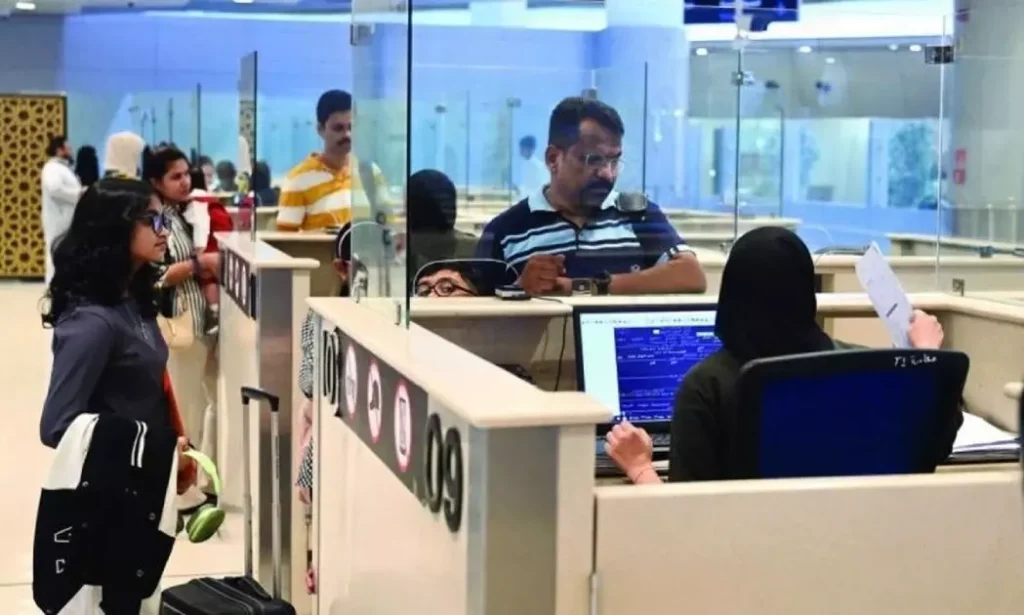Kuwait City: The new exit permit requirement for expatriates working in Kuwait’s private sector officially came into effect on July 1. According to reports, the first day of implementation at Kuwait International Airport went smoothly, with no major disruptions reported.
The exit permit system, introduced under Article 18 of the labor law, applies specifically to expatriate workers in the private sector. As per Arab Times, most passengers on the first day were able to clear airport procedures without delay or complications.
Officials from the Ministry of Interior, especially those stationed at passport control, were well-prepared and handled the new protocols efficiently. This helped ease public concerns regarding potential delays and confusion. Many travelers expressed satisfaction with the speed and professionalism of the procedures.
To support the implementation, the Passport Security Department had made comprehensive preparations, including training staff to handle all scenarios—such as travelers unaware of the new electronic permit system.
At Terminal 1 of Kuwait International Airport, a large number of travelers completed the exit process smoothly. In most cases, it took less than a minute to check the electronic permit and proceed to passport stamping. Although some travelers carried printouts of their permits, officials confirmed that these were not required, as the data was already available in the system.
A Fully Digital Process
Colonel Yousef Al-Hawlan, Head of the Private Aviation Ports Department, stated that an electronic link has been established between the Public Authority for Manpower (PAM) and the Ports Administration. This digital connection allows immigration officers to access permit details directly, eliminating the need for physical paperwork.
An emergency task force is also on standby to address any technical issues. Although many expatriates continue to bring printed forms, officials verify the permit using their personal data already in the system. If the permit doesn’t appear, officers can scan a barcode from the applicant’s phone.
Once the employer approves the application, issuing the exit permit takes only a few minutes. The permit remains valid for seven days.
On the first day of the new law’s implementation, nearly 20,000 expatriates completed their exit procedures—most of them were private-sector workers. The law, under Article 20, exempts dependents (such as spouses and children under family residency) and domestic workers.
Airport Coordination and Passenger Support
To avoid delays and crowding, the Directorate General of Civil Aviation and airline operators are coordinating to ensure that boarding passes are issued only after exit permit verification. This helps prevent last-minute issues at passport control and avoids missed flights.
Colonel Al-Hawlan acknowledged that some expatriates—especially those less familiar with digital tools—faced challenges with the new system. In such cases, employers can still issue permits via Sahl or As-hal apps. Passengers may then proceed directly to the airport, where their data will be available in the system.
Permit Issuance Statistics
The Public Authority for Manpower confirmed that the new system has been well-received by expatriates. So far, 35,000 exit permits have been issued to private-sector workers. Between June 12 and June 29, the authority received 22,000 applications, and on June 30 alone, 13,000 new applications were submitted.
Only one complaint has been officially registered regarding the system, and it has already been resolved.












